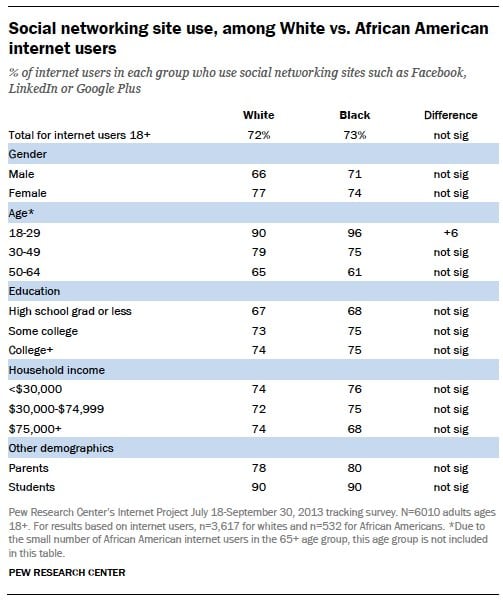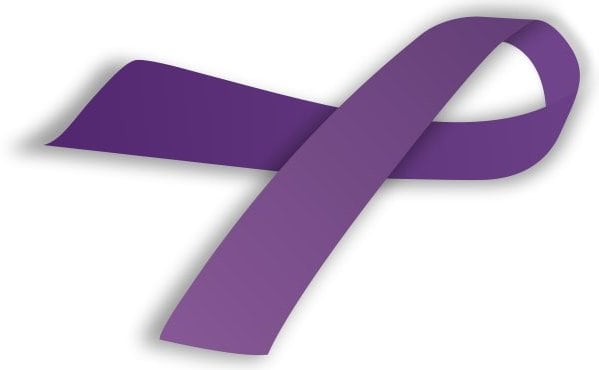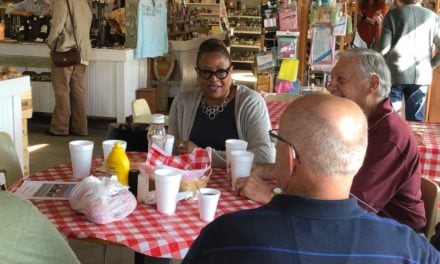
Black women should not shy away from social media as it is one of the biggest transformational changes in society today. (Getty Images)
If you scan the headlines, you’d think that all sisters were tweeting, friending, liking, linking and posting pics on their social media profiles. (@blacktwitter, anyone!) Indeed, a study by Pew Research Center’s Internet and American Life Project found more women than men use social media. This is particularly true for black women who are 18 to 29 years old — 96 percent of whom have flooded onto social media since their popularity soared in the past five years. Usage drops to 79 percent for those ages 30 to 49, and even further for older women.
Despite the enormous popularity of Facebook, Twitter and Pinterest, a small group of women are anti-social media. These often strong, capable women can wrestle a spreadsheet into submission, manage a staff of lawyers, decipher complicated medical information, raise funds like a millionaire or wrangle on-field interviews with professional athletes, but they prefer to engage in person.
They shy away from social media even though it seems everyone and their mothers are on Facebook (with its more than 1.23 billion users), Twitter (with 200 million-plus users) and Instagram (with 150 million-plus users). Today, nearly 72 percent of adults online use social-networking sites. As a result, social networks have forever altered the state of communications.
This is amazing — especially since black migration online lagged just a decade ago. As users said in surveys then, nothing online spoke to their interests and needs. All that has changed. Everything from job openings, education, health-care information and services, to television programming, socializing and gaming are activities largely available via the Web. And all have a social media component. Some reports say that the fastest-growing group on social media has been Baby Boomers eager to keep up with their grandchildren and the trends, such as “Scandal” Thursdays.
Women are taking to social media to update family and friends on personal and professional milestones, such as uploading pictures of the latest newborn and recent graduates. Some take “selfie” photos to post their latest social event. Many are even breaking taboos by soliciting prayers for family deaths or sharing memorial photos. Twitter and Facebook have become curated news bulletins. And both forced the mainstream media to focus on the stand-your-ground death of Trayvon Martin.
Cyber Career Connections
Searching for a job? No need to check the newspaper classifieds; there’s now an app for that. Even better, consult your social network, says journalist and social media queen Benet Wilson. The 50-year-old, who started her career when old-school typewriters were standard desk equipment, said she has personally experienced the benefits of cultivating community in the digital world.
“In 2006, the magazine I was writing for decided it was going all-in on digital.” When the company began to train employees to use the digital tools, Wilson said, “I got on Facebook in 2006, got on Twitter in 2008. I have a fully updated and loaded LinkedIn page.” Despite all that, she was laid off. But Wilson had no fear; she figured she’d have a job by the end of the month.
In the meantime, her Twitter network started tweeting about her predicament when word spread that she would not be attending an industry conference. Soon, she found freelance opportunities with a competitor.
Her job search accelerated on social media, and two of the positions for which she was being considered were not listed anywhere. As a result, she says: “People contact me all the time,” because they know where to find her online.
Social Media and Technology Phobias
So who are the women who avoid social media like the plague? Wilson says when she encounters them she wonders what’s stopping them from using social media.
“I think women of a certain age have this — fear is too strong — a reluctance to use technology and things like social media,” Wilson says. “They see it as something kids do and is not relevant for them.”
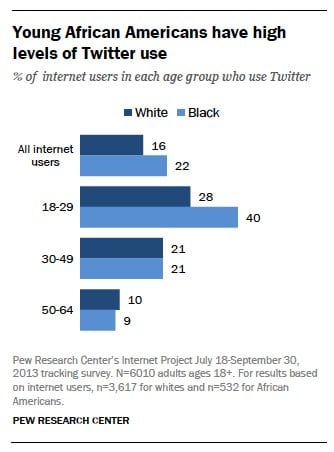 Even some young people acknowledge concern about their privacy and online security as they continue to send text messages and tweets as well as to connect with family via regular Skype calls or Facebook updates. While there are still a significant number of people who cherish their privacy and choose to live their lives unplugged, in today’s world, they are becoming the exception. Indeed with the information we readily give by simply checking e-mail, surfing the web or using credit cards, we have already exposed our private selves to private companies.
Even some young people acknowledge concern about their privacy and online security as they continue to send text messages and tweets as well as to connect with family via regular Skype calls or Facebook updates. While there are still a significant number of people who cherish their privacy and choose to live their lives unplugged, in today’s world, they are becoming the exception. Indeed with the information we readily give by simply checking e-mail, surfing the web or using credit cards, we have already exposed our private selves to private companies.
But, those women may have plenty to fear: Is the government spying on them? Will that fatal attraction of years past look them up on Facebook? Will they become the butt of Twitter jokes? Will strangers cyberbully them with racist rants in cyberspace? Will they be tricked into revealing personal information? Will they do something so wrong on social media that they end up looking dumb for all the (online) world to see?
Or maybe they fret about how best to handle a deluge of information and so many new tools all at once. After all, social media speeded up life just as some women were about to slow things down. So they state matter of factly: Social networking is a waste of my time.
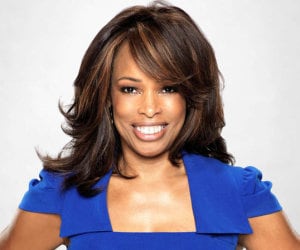
Pam Oliver found the fury over her hair during the NFL playoffs comical and prefers to focus on her talent as a sideline reporter. (Fox Sports)
The Downside
The reality, according to some studies, is that social media may not be the most welcoming place for black women. For example, Fox Sports sideline reporter Pam Oliver told NPR that she didn’t see any need to use social media after becoming the center of a feeding frenzy on social media for a supposed hairstyle “don’t” during the NFL playoffs.
Technologist Adria Richards went silent for months on social media when she received a flurry of racist slurs, rape threats and threatening emails after she used Twitter to call out two white men making sexually charged jokes at a technology conference.
Not cool. Jokes about forking repo’s in a sexual way and “big” dongles. Right behind me #pycon pic.twitter.com/Hv1bkeOsYP
— Adria Richards (@adriarichards) March 17, 2013
And everyone cringed when the male staffers at the satirical website The Onion thought it was funny to call Quvenzhané Wallis out her name on Twitter just after the 9-year-old appeared on the red carpet at the Academy Awards in a pretty blue princess dress with her sweet puppy purse for her star turn in Beasts of the Southern Wild.
After these stories, some black women don’t feel a need to engage on social media. Others assume it’s just a fad that will soon go away.
NOT!
The Cost of Opting Out
Instead, the costs of avoidance will grow. Many public agencies and private-sector businesses are using social media as their main form of public outreach and customer service. They figure using social media can save time and money. As a result, gaining access to valuable information will become more difficult for those who opt out.
For example, Social Security recipients now must go online to www.socialsecurity.gov to review their earnings and benefit information. Paper-based benefit checks were eliminated last year for electronic payments via direct deposit or prepaid debit card. (Tweet: @SocialSecurity.) On the other hand, some shoppers can get better customer service via Twitter or Facebook than by making a phone call.
And forget FICO, new companies are experimenting with using your social media stream to determine your credit-worthiness as an alternative to Transunion, Experian and Equifax, the traditional credit-reporting agencies. And some experts say social media will become a disrupter of traditional banking services.
For some people, it is an alternative to agencies that give them a poor credit rating. These companies are vying to help those with poor credit and serve as less onerous alternatives to payday lenders.
For these reasons and more, black women should not shy away from social media, one of the biggest transformational changes in society today. Information is power. Becoming more comfortable with social media will help you understand the changes as the digital revolution alters everything from banking to churches.
5 Ways to Go Social
women ages 30 to 49 use social media, but the numbers drop for older women. (ThinkStock/Getty Images)
Here are five tips to ease into the social media flow:
- Pick one or two social networks to explore, say Twitter and LinkedIn, the latter of which is virtually essential for professionals even those who aren’t seeking employment.
- Follow people who have similar interests and expertise to build your community.
- Check out the conversations of others before jumping in to see how they interact with the community.
- Remember, it’s a public space. Keep controversial opinions and personal information offline, unless you want to share them with potential employers and the rest of the world.
- Be thoughtful, show your human side and engage the people you meet.
After all, we are in this together.
Ingrid Sturgis, aka the Digital Diva, is a technology consultant for FierceforBlackWomen.com and an assistant professor, new media, at Howard University.


